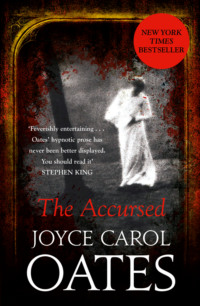
The Accursed
It had been a passionate belief of the Campbells of Argyll, that battle was preferable to peace, if that peace was determined by compromise.
There was not a conspiracy exactly, but certainly an understanding, among Woodrow’s intimates, that talk of the man’s ailments should be curtailed. With much justification, Woodrow felt that if it became generally known that his health was erratic, confidence in his leadership might be undermined.
In fact it was impressive how Dr. Wilson soared above such shackles of the spirit, frequently climbing out of his sickbed to attend to university affairs, or to travel by rail to Philadelphia, Baltimore, Washington, Richmond, even so far as Chicago and St. Louis, to give a speech. “The flesh may be weak,” Woodrow quipped, “but the spirit is willing.” As a precocious young boy Woodrow had sent away for a mail-order chart depicting the postures and declamatory gestures of classical oratory, in order to learn the art of public speaking; as a result, he had unwittingly become imprinted with a set of mechanical gestures, and in times of stress and fatigue he was likely to lapse into them, as his students had soon discovered, in his lecture courses at Bryn Mawr, Wesleyan, and Princeton. (In those days, students suggested discontent and boredom by shuffling their feet. How Woodrow had come to dread, and to abhor, that shuffling sound, as of brooms being swept along floors, maddeningly; and when students were reprimanded by university proctors at Princeton for shuffling their feet during chapel sermons, Woodrow was not at all sympathetic, and refused to mitigate expulsions from the university.)
Yet, audiences felt positive about him: for he was so very earnest, and so idealistic. He had hoped to be loved by multitudes, he said, but, failing love, to evoke admiration, awe, and even fear in audiences was not such a bad thing.
Sow yourself in every field of the world’s influence; knead yourself into its every possible loaf of soul-nourishing bread. Be vitalizing wheat, indeed—hide not your talents. So Woodrow’s father Joseph Ruggles Wilson had warmly advised him.
—THE KU KLUX KLAN lynching in Camden, New Jersey, on March 7, 1905: had Woodrow Wilson entirely forgotten about this, and his impetuous kinsman’s request, when he visited Winslow Slade; or had Woodrow Wilson, in the heat of his greater concern, simply brushed all thought of the terrible incident from his mind?
And did Winslow Slade know of the incident?
Could Winslow Slade not have known of it?
Конец ознакомительного фрагмента.
Текст предоставлен ООО «ЛитРес».
Прочитайте эту книгу целиком, купив полную легальную версию на ЛитРес.
Безопасно оплатить книгу можно банковской картой Visa, MasterCard, Maestro, со счета мобильного телефона, с платежного терминала, в салоне МТС или Связной, через PayPal, WebMoney, Яндекс.Деньги, QIWI Кошелек, бонусными картами или другим удобным Вам способом.
Вы ознакомились с фрагментом книги.
Для бесплатного чтения открыта только часть текста.
Приобретайте полный текст книги у нашего партнера:
Всего 10 форматов